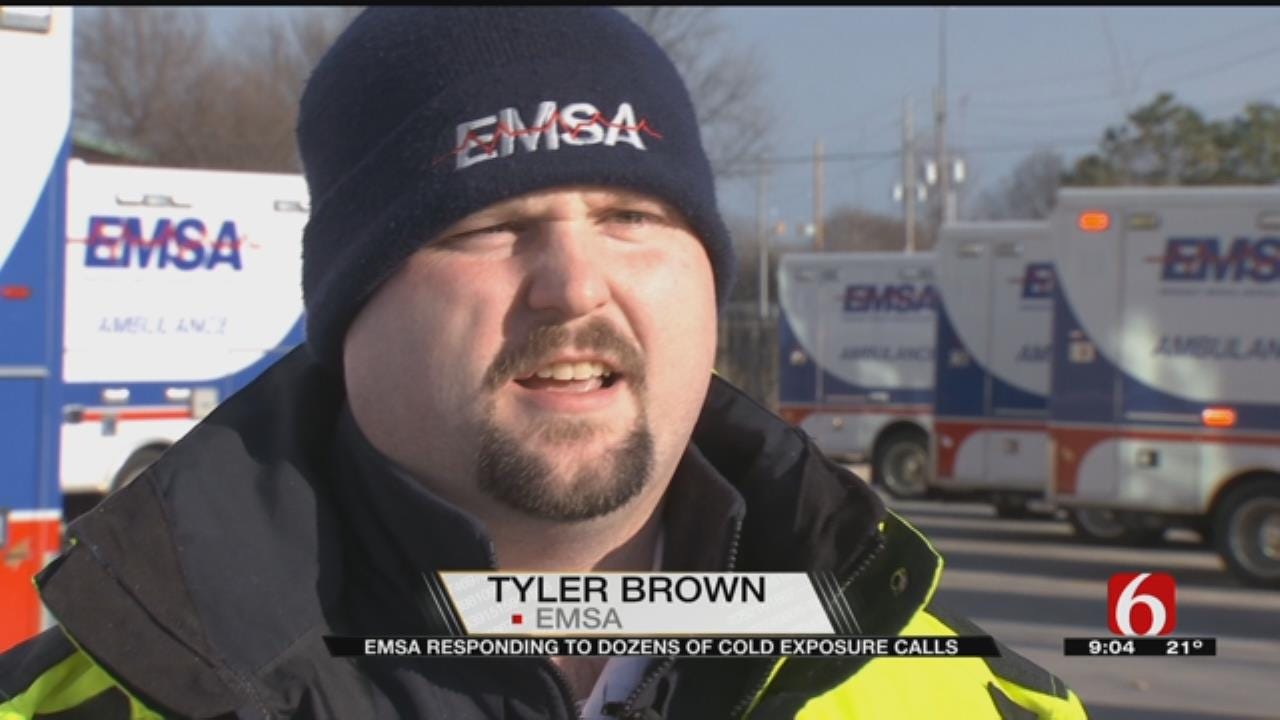Cold-Related Calls Keeping EMSA Busy
<p>Paramedics in Tulsa are busy helping people in the cold. </p>Tuesday, January 2nd 2018, 9:13 pm
Paramedics in Tulsa are busy helping people in the cold.
Already, EMSA says it's had more than two dozen cold exposure calls. The 25 cold exposure calls have been since November 1st. That compares to 36 cold exposure calls last winter total.
EMSA says knowing what to look out for and what to do before a paramedic gets there makes all the difference.
Temperatures have dipped as low as three degrees, feeling like negative 15 with wind chill.
"Single digit and negative digit temperatures are not something we deal with on a regular basis and because of that we are seeing increased cold exposure calls,” said assistant supervisor Tyler Brown.
The dangerously cold weather means paramedics at EMSA are busy trying to prevent hypothermia.
"Hypothermia is basically your body temperature dropping below what is considered life-sustaining,” Brown explained.
The average temperature for the human body is around 98.6 degrees Fahrenheit. Hypothermia can begin at 95 degrees, and at 90 degrees you're looking at more serious issues like loss of thinking and motor skills.
"As the temperature drops, you get more and more blood staying in the core of your body and less in your extremities, which is why you get the numbness and tingling and frost bite,” said Brown.
If you think someone has hypothermia first call 911 then, if possible, get them to a warm space.
"If their clothes are wet, like say they got splashed with water or fell into a pond or something, you want to get those wet clothes off of them,” said Brown.
Brown warns not to try anything too drastic, like going from extreme cold to extreme hot and to drink plenty of water.
“We assume dehydration is something to do with the heat, because we're sweating and we're feeling hot, but you lose water and sweat in the cold weather too,” Brown stated.
Thankfully, we aren't dealing with winter precipitation, which can lead to a sharper spike in cold exposure calls.
"Cold is one thing,” said Brown. “Cold and wet is entirely different."
Paramedics say the homeless, kids, elderly, people with circulation issues, diabetes and heart problems are the most at-risk.
More Like This
January 2nd, 2018
September 29th, 2024
September 17th, 2024
Top Headlines
December 14th, 2024
December 14th, 2024
December 14th, 2024
December 14th, 2024










